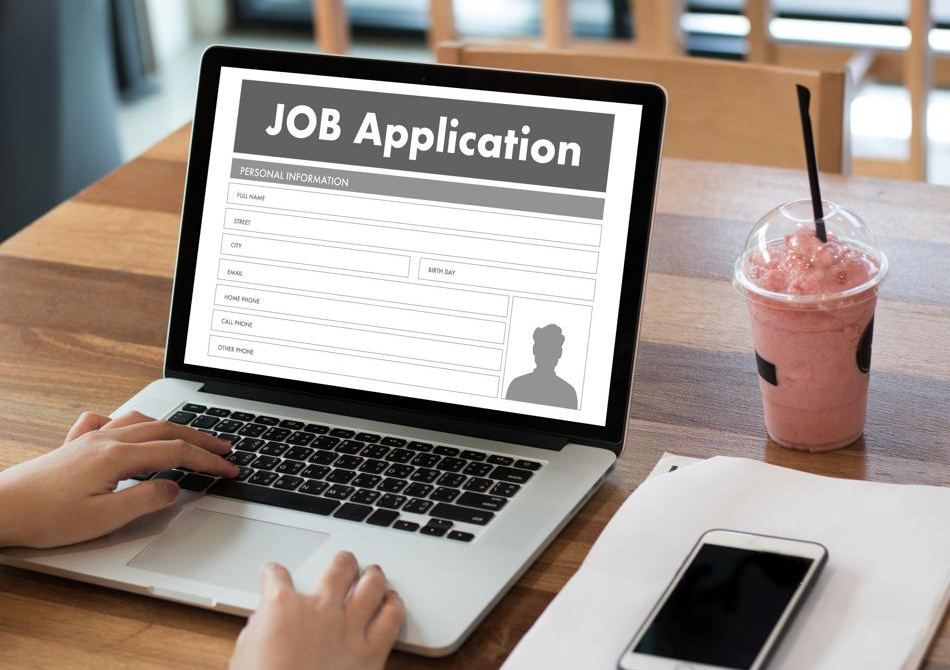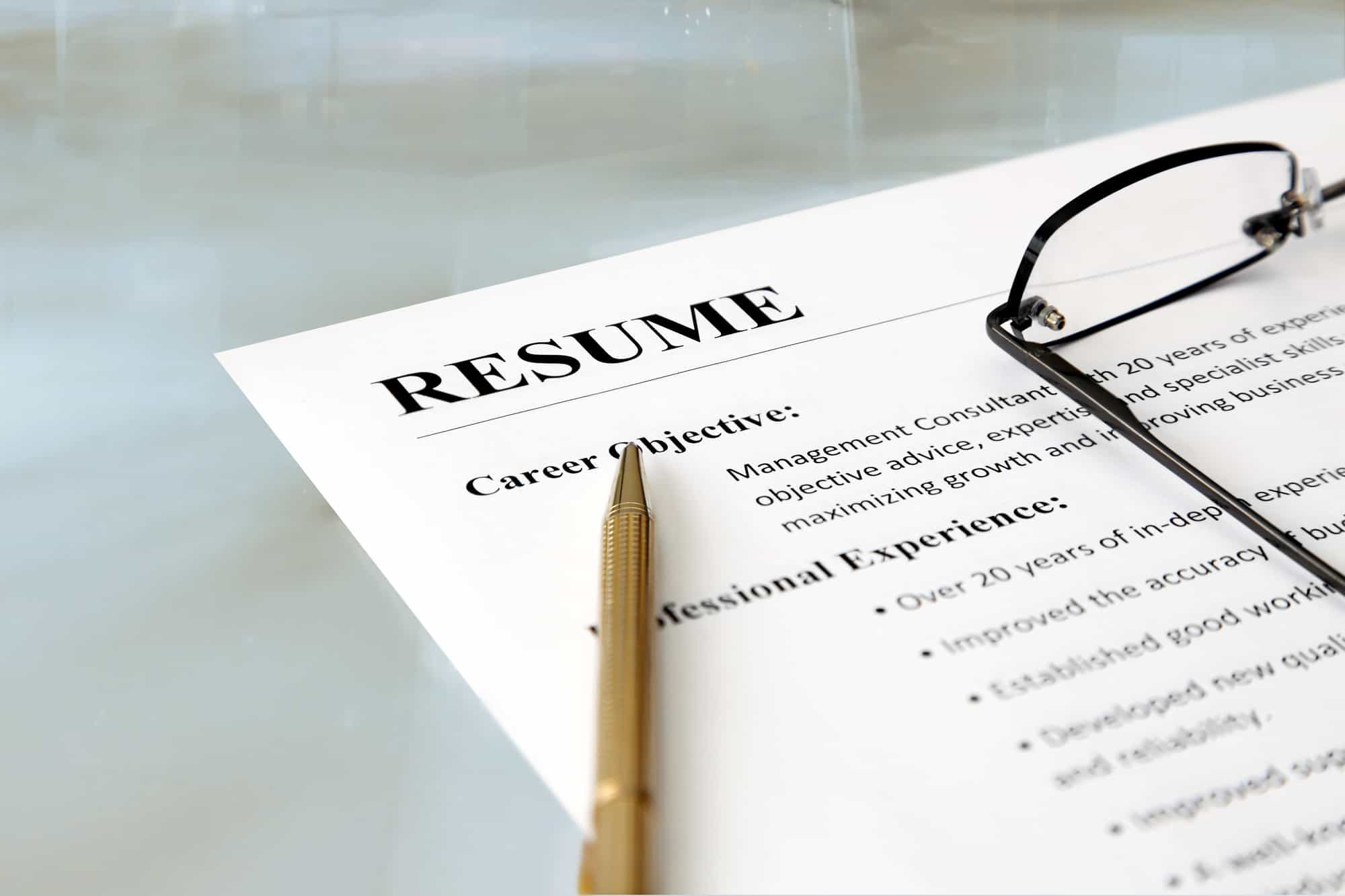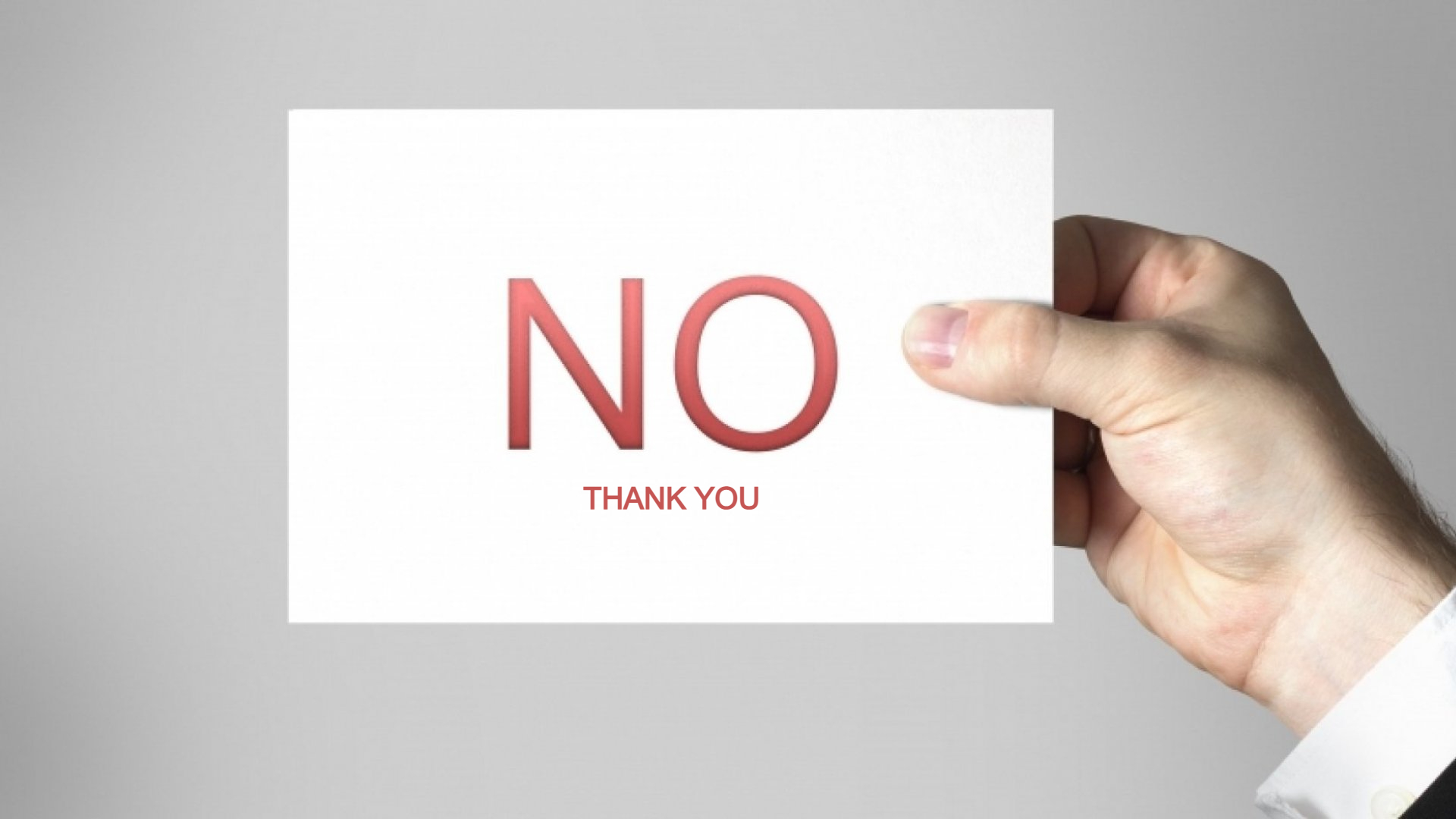
Imagine sending your manager your business proposal that you stayed up for a few nights to complete, and he suddenly calls you in to express his dissatisfaction towards the ENTIRE document plus orders you to redo everything. What would your reaction be? Would you take it personally and get discouraged, or would you see it as an opportunity to grow?
We’ve all been there, although the circumstances need not be the same: It’s the fear of being criticised by others. Yet, whether you like it or not, we’ll all face criticism at some point in our lives, be it at work, at home, or out in public.
So, what is criticism? According to the Cambridge Dictionary, it refers to “the act of giving your opinion or judgment about the good or bad qualities of something or someone”. In a workplace where everyone may be a critic in one way or another, that means you’re likely to receive some feedback that can sometimes be constructive or destructive.
How criticism is conveyed makes all the difference. It’s considered ‘constructive’ if the comment given is positive and encouraging, but it’s ‘destructive’ when the comment is negative and depressing. Take a look at the table below to better understand each criticism:

At work, criticism can come through official channels such as a one-on-one meeting with your supervisor or higher management. It can also happen more casually and organically, like receiving suggestions from a co-worker on how to improve the project you’re working on.
Regardless of the source, criticism of all types can be an essential part of an employee’s life. While it might be challenging to deal with, it can also be beneficial towards your career growth.
There are numerous ways to deal with criticism, both good and bad. Fortunately, you have the power to control how you respond to every positive and negative input, as well as use them to your advantage, so choose wisely!
One of the most fundamental ways of benefiting from workplace criticism is to be willing to listen. Open up your mind to take note of any critique from anyone in the office, and always assume that they have good intentions.
Allow yourself some time to think about the issue and the situation. Even if the delivery of the criticism might sound awful, keep in mind that it may not be intentional.
It’s also a good idea to restate the feedback to make sure you’re both on the same page. This will give you some time to process the comment and ensure that you don’t misunderstand anything. While you’re at it, practice acknowledging and thanking people for their contributions.

Your first reaction, whether verbal or nonverbal, can be perceived as a reflection of your maturity and professionalism. When it comes to responding to criticism, your facial expressions and body language are just as important as your words.
Nonverbal communication is also thought to be more truthful by others. As a result, it’s a good idea to take a deep breath and consider how you’ll react to any criticism, so you don’t end up saying something you’ll regret later on!
This will also give you a chance to gather your thoughts and manage your body language and facial expressions. Try to always maintain eye contact and avoid crossing your arms. Open body language will make you feel less defensive.
For most people, having spent hours upon hours at work every day will have them think that their job is an extension of themselves.
If this is the case for you, taking a hit on your work performance can make it seem like a personal attack, and dealing with that can be difficult.
Always remember that mistakes at the workplace are not reflections of your character, and as humans we’re bound to make them as part of our evolving process, so try not to take them personally.
Whenever you’re in doubt and have trouble understanding certain feedback, ask clarifying questions. Make no assumptions until you’ve done so. By asking for clarifications, you can gain a clearer grasp of their views, and where they are coming from.
They’ll be urged to justify rather than leave you with vague comments that will not help you improve in any way. Now, the following are some examples of possible questions you can use:

Scheduling a follow-up will demonstrate to your critic (especially your superiors!) that you’ve been paying attention and are committed to improving your performance at work.
Develop and present strategies in a scheduled meeting, to tackle the issues they’ve brought up. Not only will the critic feel valued and heard, but you’ll also gain the benefit of increasing your rapport and demonstrating that you’re a team player.
This will also serve as a platform for you to make any sensible counter-arguments if there are any aspects of the criticism with which you disagree. With stronger emotional control, you can express your case calmly, and help people see your point of view.
It’s easy to feel overwhelmed and stressed out, especially after working so hard to keep your emotions under control! It helps to be able to communicate with other trusted people when this happens.
Find a mentor, a colleague, or a friend with whom you can share the criticism and your thoughts/opinions. This is a good way to get feedback from individuals whom you trust, and also give you a chance to be open and honest about your feelings without being too hard on yourself.
You never know when you might learn something valuable from someone else’s experience that you can apply in the future.

Some people are outspoken in their criticism, while others are more reserved. Regardless of how it seems and whether it is positive or negative, you still have to face it. Even if it can be difficult to manage, always remember that you have complete control over your feelings.
You can try the tips below to improve how you feel about any criticism you get and better handle the situation the next time it arises:
If, after doing everything you can, the critic persists with their feedback and you recognise that the criticism you received is unfair, delivered in a harsh tone, or constantly done in public for everyone to hear, you must start taking extra precautionary measures.
This is especially when the situation continues despite your calm and respectful efforts to persuade to bring them round to your view. It’s time to request for a meeting with someone higher up the ladder.
Consider getting approval from a superior and do not launch an attack. Rather, make sure to include all pertinent information and convey both sides of the argument. Remain cool and rational when presenting why you think your side of the story makes more sense.
Keep in mind that the ultimate goal is to improve the situation for the company’s advantage, so don’t make things any more difficult than they are.

It’s a very different situation indeed, getting criticised by your boss as compared to getting criticised by one of your subordinates. Let’s look at the comparison below:
Employees usually question your credibility or even your decision. Even if the critic is someone lower down, it doesn’t hurt to open your mind and listen to what she or he has to say.
Consider their points and determine whether or not the criticism is fair. If you find some truth in their feedback, act on it and make an effort to improve yourself.
Have the humility to acknowledge your shortcomings and the confidence to do things differently. This will help improve the relationship between you and your subordinates.
Meanwhile, don’t be alarmed if your boss criticises your work style or your position at the office. Criticism doesn’t always mean that your job is in jeopardy. It indicates that your boss expects to see some improvements from you.
The most important thing is to demonstrate that you are a team player who is willing to improve yourself. It doesn’t hurt to say, “I’m eager to learn how I can improve my performance” or “How can I restore your confidence that this is being managed well?”
At the end of the day, you should be able to deliver the change. Determine a reasonable period for making the changes and ensuring that they are implemented.

It is beneficial to foster a feedback culture in any workplace to encourage personal and organisational development. However, being criticised, no matter how well you handle it, can be a traumatic experience.
Therefore, it’s important to realise that the comments don’t define you as a person, and that all you want to do is learn from the circumstance. Even if you believe the feedback has harmed your reputation and credibility, see it as a learning experience.
The bottom line is that you need to digest the feedback by absorbing what is truly useful to your development and discarding the rest, such as harsh words and rage. Only then will you realise that workplace criticism can be extremely beneficial.

A conducive and ideal work environment is optimal when it comes to enhancing staff productivity, teamwork, and job efficiency, as well as keeping employees motivated. However, creating that positive atmosphere takes more than just a comfy chair and a wide window-facing desk.
Four main factors that contribute to a conducive working environment are a committed workforce, clean and comfortable office space, availability of natural light, and clear communication on all levels.
These are the elements that make employees feel enthusiastic and always looking forward to having a good start at work each day. Although this is what everyone seeks, it can be far from reality as any workplace will have its fair share of drama.
You’re bound to run into one (or more!) person who enjoys causing conflict, and somehow trying to ruin your perfectly great day at work. So, what should you do if you come across an individual like that, and find yourself in a difficult situation?
To provide you with a clearer perspective, let’s delve into the meaning of conflict, what it is about, what are the ways to deal with it, and how to resolve your workplace conflict.
According to the Cambridge Dictionary, conflict is “an active disagreement between people with opposing opinions or principles”. What that basically means for a workplace is that employees don’t see eye-to-eye when working together.

That is why the minute we hear the word ‘conflict’, the first thing that probably comes to mind is a tense situation where one or more people are bickering, while the rest are trying to ignore them or frowning in dissatisfaction.
Conflict in the workplace is indeed unavoidable, but not all are bad! Conflict comes in many forms and some can be good. You can tell the difference by looking at the outcome.
If the conflict is constructive and brings out the best in employees, then it’s good. On the other hand, bad conflict is destructive, and takes a negative emotional toll. Below are some common examples of good and bad conflict in a workplace:

Source: Rumie-Learn
No matter which industry you work in, conflict is inevitable in any organisation. It could be due to various reasons including individual differences in cultural background, personality, and learning styles.
The following are some of the main reasons why some people are prone to causing unnecessary conflict situations at work:
Poor communication between team members, or between employees and the management, is a common source of workplace conflict. Misinformation can cause tension and misunderstanding among the employees.

Individuals with different perspectives coexist in any organisation. When people cannot accept and recognise each other’s differences, that is how conflict arises.
Employee resistance to change is one of the most prominent reasons for workplace conflict. This frequently occurs when they refuse to follow their management’s directions to implement new procedures or make unexpected changes to their job routine.
When employees are unsure of what is expected of them, they can feel demotivated and undervalued. Some employees may also take this for granted and leave a task uncompleted, because they believe they’re not responsible for it.
Different personalities exist in every work environment as people come from different backgrounds, cultures, experiences, and demographics. Conflict will arise unless employees learn to work together and embrace each other’s differences.

When management fails to notice that one or more employees in a department are underperforming and not working to their full capacity, conflict is bound to happen.
Organisations with a toxic work culture not only lead to conflict but also hurt productivity. Other hostile situations are bullying and abusive behaviour between team members.
Some managers could be biased and only listen to one side of the story. This lack of competent supervision can cause workplace disagreements because there is negative interaction from the management when dealing with issues.
When faced with conflicts, so many scenarios emerge as to how you should handle the situation and, of course, the person who caused it. First off, you should accept that conflict is a natural part of life and that it can occur frequently.
Always maintain a cool demeanour so that you may remain in control of the situation and your actions. You don’t want to make a mistake or say something hurtful that you’ll come to regret, or worse, that’ll cost you your job.
Here are some other ways of dealing with workplace conflict and difficult people:

While we have the right to express our opinions and dissatisfaction, confronting and opposing every matter that we disagree on, may not be the best approach. It could backfire, putting you in a bad light with your superiors and co-workers.
One good way is to keep a safe distance from people who are toxic and always spreading rumours, be it in the office or on your social media. If you ever feel that tensions are still lurking despite your best efforts, get a third person, someone who is familiar with the issue, to assist you.
Nonetheless, the end goal is always to reach a positive conflict resolution. These are some approaches for resolving workplace conflict:

Conflict can lead to stress, exhaustion, and depression if it isn’t resolved quickly. If you ever find yourself in an unpleasant working situation, learn to protect yourself using the measures listed below:
It’s clear by now that conflict is completely normal at any workplace. However, depending on how we interpret conflict and the outcomes that arise, it can be either constructive or destructive.
Some individuals believe that avoiding conflict is the simplest way to cope with it, yet this isn’t always the best approach. Instead, effective communication and listening are essential for resolving conflicts and improving staff morale.
Remember that you spend eight hours or more a day at work every week, so take advantage of your ‘me’ time at work, surround yourself with the right crowd of colleagues, and attempt to resolve problems whenever time permits.
By actively addressing conflict when it arises, both employees and management can progress toward a more positive work atmosphere.

We are living amidst a global pandemic that has disrupted the livelihoods and well-being of many workers across the world. Not only were there high fatalities in many countries, but it also greatly affected salaries, most industries, and the world economy.
Moreover, the back-to-back lockdowns imposed in some countries also affected work-life balance. A survey study conducted among German and Swiss employees even found that COVID-19 had worsened most employees’ work and private life.
Countless workers are becoming physically, mentally, and emotionally tired as they juggle between taking care of family members, changing workplace environments, managing work-from-home demands, and coping with the pandemic.
While certain sectors and industries are starting to recover, there’s still fear and uncertainty surrounding COVID-19. We don’t yet know how we’ll be affected, how long it’ll stay, or how severe things could become.
At the same time, the stress of dealing with work during the height of COVID-19 has increased the number of workers experiencing job burnout. As this can harm physical and emotional health, it’s important to understand if you’re suffering from this condition, and how to pull yourself through.

Burnout can be very difficult to detect as people often mistake it for being tired or stressed. The meaning itself has been debated for decades since the term was introduced in the 1970s.
Nonetheless, in 2019, the World Health Organisation (WHO) defined burnout as “a syndrome conceptualised as resulting from chronic workplace stress that has not been successfully managed”.
WHO did not classify burnout as a medical condition, but instead as an occupational phenomenon that is characterised by three dimensions:
Burnout can have a negative impact on your mental, physical, and emotional health. The symptoms usually appear when you’re overworked and feel as though you can no longer keep up with the demands of your job.
However, don’t confuse the feeling of burnout with work stress. People who are stressed out might be struggling to deal with pressures at work, but they can still believe that they would feel much better if their priorities are in order.
Burnout, on the other hand, is about feeling empty, emotionally drained, and can no longer cope with the demands at work or even life. The table below highlights the main differences between work stress and burnout:

Burnout can happen to anyone, at any stage of their working lives. If you’re still wondering whether or not you are experiencing burnout, these are the 11 red flags you should look out for:

This is way beyond just feeling tired. It can be emotional, mental, or even physical exhaustion and the feeling just doesn’t go away. So, if you have to literally drag yourself out of bed and go to work, you could be on the verge of burnout.
You are no longer excited about the work you’re doing. Nothing could interest you anymore, not even the activities you used to enjoy. If you can no longer feel enthused and encouraged, you should not only worry about burnout but also depression.
Losing the ability to focus and understand what is expected of you. You may notice that you’re getting forgetful, unsure of how to start your work, and having trouble concentrating.
You may not be able to perform properly in your daily activities if you are overwhelmed and drained. Try comparing your current job performance to past years’ performance to identify whether you have been suffering from burnout.
No matter what you do or where you are, negative thoughts and emotions keep lingering around you. You might also find yourself being more negative than usual. It is crucial to realise when you’ve developed unusual pessimistic and cynical personalities.
This is when you find yourself always arguing with other people, or maybe stop talking less to family and co-workers. The conflict could have taken place both at work and at home. Pay attention to when you begin to lose interest in others, particularly those who are close to you.
Some people who are burnt out will engage in harmful coping mechanisms such as binge drinking, smoking, being excessively sedentary, consuming more junk food, barely eating enough, or sleeping less.
Poor work-life balance is when you find yourself working longer hours, enduring more responsibilities at work, and having more obligations at home. This could lead to exhaustion, fatigue, and ultimately burnout.
You are always unhappy and feeling dissatisfied with your job, and even personal life. At work, this could lead you to experience a lack of interest in your tasks and company.
You could be burning out if you are troubled by unexplained headaches, stomach or digestive problems, or other physical ailments. Burnout has also been linked to several physical issues such as dyspnoea (shortness of breath), insomnia, chest pain, and arrhythmia (irregular heartbeat).

You may believe that what you’re doing no longer matters, and you may be disillusioned with just about everything. This means you are disappointed because the work you’re doing is not as good as you expected or hoped it would be.
Job burnout can be caused by a variety of factors, which vary from one person to another. However, there are several common factors that can be identified as causes of burnout, including:
As the signs differ between individuals (as they do with any illness), it’s vital to comprehend the stages of burnout before taking steps to prevent it. The following stages are the ones that are typically observed:

High job satisfaction and enthusiasm, even though you may have begun to experience predicted stresses.
Some days are more challenging than others, and your optimism is slowly fading.
A significant shift in your stress levels, from motivation to enduring stress on a regular basis.
Signs and symptoms become critical are you are burning out. It’s often impossible to carry on as normal at this stage.
The symptoms of burnout are so embedded in your life that you are more likely to have serious chronic mental, physical, and/or emotional problems.
Job burnout may be caused by the following factors:
If left untreated, burnout can have significant implications such as chronic illnesses, extreme irritability, and excessive stress. The feeling of burnout certainly seems severe enough that you must be wondering if you’ll ever be able to recover from it.
Before anything else, you must first acknowledge that you are experiencing burnout, and that you want to improve yourself to feel better. Only then you can try to recover yourself and start enjoying your job again. These are some of the best ways for you to bounce back from burnout:
Even though it is common for many employees to experience workplace burnout, it doesn’t always have to be that way. Ultimately, the solution boils down to one thing – YOU. Make your health a priority, recognise your involvement in burnout, and get help if you require it.
Your mental health is far more important, and you need to know when it is time to take a step back and re-energise yourself. It’s crucial to keep in mind that you can always do your best to prevent or manage workplace burnout, while also having a satisfying and rewarding job.

After all the hard work of writing up your resume to sending in applications, you’ve finally secured yourself an interview for your dream job. We know that you’re thrilled about that job interview, but wait, that’s not yet the end of your struggles!
Having an interview means having the chance to present yourself as perfectly as possible, to impress your interviewers. And you’re here reading this because you want to be well-prepared for the upcoming meeting. Well, you’ve come to the right place!
These days, interviews come in many forms ranging from phone calls, face-to-face meet-ups, video or online interviews, and more. However, regardless of the types available, the things you need to prepare don’t change.
Every hiring post comes with a job description. And this job description posted by the employers can help serve as a guideline to prepare for your interview. Why? Because it’ll list out the qualities, background, skills, and qualifications the employer is looking for when hiring candidates.
The questions asked by the interviewer will usually be related to the job description, and the more boxes you tick concerning the description, the more ideal you are as a suitable candidate.
As an employer, it’s normal to assume that the candidates who have applied for the position would have taken the time to know more about the company. Thus, your interviewer will most likely try to find out how much you know about the company.
Some of the things they could ask would be who the competitors are, what’s the nature of the industry, as well as what’s the best way for them to move forward are among some of the questions. This is why researching the industry and the company you’ve applied to is important.

Going to an interview can sometimes feel like pitching a sale on yourself to your potential employers. So, it’s always good to have at least five key selling points up your sleeves to show that you’re a high calibre candidate. For starters, you can prepare a few scenarios to demonstrate the soft and hard skills that you possess.
As interviewers find candidates who show a keen interest in the hiring position to be more attractive, you should definitely come prepared with a well-rehearsed answer about why you want that job. The answers you’re preparing should address your interests in the job, how you hope to grow with the company, and the skills you have that make you a good fit.
Most employers hire an individual through the elimination process. Since there will always be more candidates in comparison to the availability of job openings, interviewers are constantly looking for candidates’ flaws to screen them out.
So, why not try to put yourself in their shoes and ask why they might not hire you? Through that, you’ll get to identify what weaknesses you have that might get you eliminated, and be well-prepared to smoothly (but politely!) counter any possible questioning.
Most of the time, candidates tend to focus too much on interview questions related to the job and the company. They then forget to be prepared for some common questions, which makes them at a loss for words because they’re caught off-guard.
While it’s hard for you to predict every question that the interviewer could possibly ask, there are always a few that have never failed to be asked during an interview. These common questions include:
The questions mentioned above are just the tip of the iceberg. There are plenty of other common questions that an employer will ask the interviewee, and you should definitely plan carefully thought-out answers for them so that you don’t accidentally trip on your words during the interview!

More often than not, having no question to ask during your interview process when you’re given the chance to do so may reflect on your lack of interest in the job or the company, even if you don’t mean it that way.
This is why it’ll be best to prepare some great questions to ask your interviewers. Having some on hand to ask will show your interviewers that you’re not taking the session (and their time!) lightly.
Did you know that most interviewers already make up their minds about the candidate in front of them after just 5 minutes into the interview? They just spend the rest of the interview looking for details to confirm their decision.
This means that the first few things you’re going to express about yourself will be very important. So, better make the most out of the “Tell me about yourself” question when you’re given the opportunity to.
It’s essential to have a few hard copies of your resume and portfolio to support your statements when you’re attending an interview. While reading through your resume, ensure there are zero grammatical and/or spelling mistakes.
It’ll be wise to rehearse the explanations about your past experiences and how the skills you’ve picked up can contribute to the hiring company. This way, you can reassure your future employers that you’re not only listing out skills on your resume based on their job descriptions.
Behavioural interview questions seem to be the trend among most interviewers these days. They would ask the candidate to describe any past experiences they’ve had that would be a good indicator of their behaviours.
You might be asked to describe any unpleasant experience you’ve had with your ex-bosses, a time when you’ve had to make an unpopular decision, or even how you’ll handle pressure and make choices with limited information.
It’s always a good practice to show your appreciation after an interview. So, write a thank-you email after every meet-up, and customise your content to note the things you’ve talked about or discussed during the interview.

There are many ways for a candidate to leave a strong impression on the interviewers. However, below are a few of the usual things interviewers look out for when interviewing the candidate.
Arriving late to an interview is never an option, as it’ll leave a bad first impression on your potential employers. So, make sure to always arrive at least 20 minutes early before the session starts.
Most interviewers appreciate a firm handshake before and after the session. You’ll also give a strong first impression if you’re sitting straight without slouching/leaning on your chair or the desk. And make sure to come across as attentive to what your interviewers have to say, by maintaining eye contact.
Once you’ve arrived at the interview, remember to always be polite and professional to any of the staff you meet before and after the interview. During the interview, you should answer all questions with a positive statement to show your enthusiasm for the job. Most importantly? Try not to tense up too much before an interview, as it may cause you to come across as cold and aloof, or extremely nervous.
Answering all the questions in a clear and concise manner not only shows your interviewers that you’re confident, but it also shows that you have excellent communication skills. If you’re faced with a tricky question, don’t hit that panic button! It’s perfectly alright for you to pause and think before proceeding with the answer; it shows that you don’t jump headfirst into any situation without careful consideration.
A good resume or CV can only help secure you a ticket for a job interview. What’s important is the impression you portray by the way you perform during an interview that will set you apart from the rest of the candidates, and land you the job you’ve always dreamed of.

If you’re looking to put yourself back on the market to search for a new job, successful job hunting tips are required! Merely sending in your resume to countless job applications wouldn’t get you anywhere close to securing a job, unless you have the proper strategies and techniques.
Job hunting involves more than just submitting documents, searching for open positions, and applying to them. Your application needs to have a certain attractive factor that will grab the hiring manager’s attention.
And it doesn’t stop there. What happens if you’re scheduled for an interview? What should you do then? Don’t worry, we’ve already prepared 10 job hunting tips to help you land your dream job.
If you’re about to enter the job-seeking market or are changing careers, you should identify the type to which you’ll want to stick to. By having a clear, realistic career goal, you’ll be able to plan out the necessary steps required to achieve it in the given timeframe, and it also helps you find what you’re passionate about!
If you’re wondering why there’s no response to your job applications from the hiring managers, it could probably be because of the resume you’ve submitted. One of the things the hiring managers take note of in the initial stage, is the look of your resume. You shouldn’t be surprised if some of them literally judge your resume by its cover.
A resume that’s too wordy, cramped, or cluttered will generally be left out, even if you’ve written lots of relevant information. So, what should you do? Simple. Download an already neatly-crafted resume template! Not only are they free, but they’re also effortless to customise.

There’s no reason for you to limit yourself to only social media or Google search results when it comes to finding jobs. There are tonnes of other resources available such as career fairs, job boards, newspapers, and even online recruitment platforms such as GRIT, which specialises in sourcing the best talent for high-quality roles with the best companies. With the help of GRIT, you’ll get yourself that perfect job in no time.
As you’re looking through the job listings relevant to your interests, it’s best for you to research the companies and the industries they’re in. It’s important to know about the culture of the companies, their current position in the market, what products or services they sell, how the work environments are, and how each company varies in terms of benefits and salary range. Understanding these few things will give you a good idea of what they’re expecting of you, and what you can expect from them in return.
It doesn’t matter if you’re a fresh graduate or a candidate with years of job experience, sending in a general resume to various job openings isn’t the way to go. One of the best ways to increase your chances of getting an interview is to tailor your resume based on the job description.
It really does make a difference when your resume spells out the desired skills and experiences you have that are relevant to the role. You should also include some sub-sections such as your education, contact information, as well as a person of reference in your resume.

Nowadays,when everything we do is related to social media and technology, having an online portfolio to build your presence will increase the chances of employers noticing you, and sometimes, it may also lead headhunters to come looking for you.
There are a few ways to showcase your expertise and passion online. The first and most simple way is through LinkedIn. Think of it as Facebook, but for professional settings. Many employers are now using LinkedIn to check on potential candidates to see what they’re up to in their professional lives.
Another method is to have a customised web page about you. Sounds a little narcissistic? Not at all! Having a web page to showcase your work is a sign that you’re proud of your accomplishments and are not afraid to share with the world, which will come across as being confident to your potential employers.
Having a solid network of contacts while you’re walking along your career path can result in more job opportunities. The more people you know, the more you’ll uncover job leads, and this is precisely why networking is so vital to the success of your search.
Having a wide variety of connections allows you to ask around to get an idea of the trend in the job market, and how you can be more strategic in your job search. You shouldn’t limit your network of contacts to the people you know. It would help if you also connect with people on online platforms such as LinkedIn.

Maintaining a good relationship with your co-workers, managers, as well as your immediate supervisors would help smoothen your career path in the long run.
Rest assured that your professional attitude towards your colleagues, managers, and bosses wouldn’t go unnoticed. If you’ve been nothing but positive and committed to your current job, we’re sure that your managers would gladly write up a glowing reference letter for your future endeavours.
Having to go through so many interviewees for one job opening would tire anyone out, so isn’t it better if you can present yourself and your past experiences in a manner that really stands out? Yes, interviewers tend to remember engaging stories and examples of your past experiences, over lists of facts!
And if you’re wondering, “How can I do that?” Don’t worry, we’ve got you covered. You can create more engaging job interview experiences by incorporating the STAR method (Situation, Task, Action, and Result) to better tell your stories. What you need to do, is to give the necessary details of the situation, what your responsibilities were, the steps you took, and the outcome at the end.
Incorporate them in your interviews, your resume, and your cover letter. Do that, and you’ll see that the dream job of yours comes calling for you in no time!

After all the hard work in customising your resume, which then got you the meeting with the potential employer, all you need to do is nail that interview of yours, and you’ll have the job! But things are always easier said than done. This is why it’s crucial to prep yourself for an interview.
How? By doing research: Start with the company, their products and services, their achievements, and what they’ve been up to recently so that you can pre-anticipate the questions that may be asked during the interview.
You should also prep some answers for common questions that’ll be asked during an interview. If you’re ready for it, you’ll be more confident and comfortable going into the interview. Try asking a friend to have a practice run with you, and you’ll find yourself stuttering less in the actual interview.
Remember, interviewers always want to know what you can offer to the company first, in order to determine your worth. After establishing that, they would be able to discuss with you what benefits you stand to gain. But before you can show them who’s the boss, you must demonstrate your skills and reasons for why they should hire you.

There are many ways to apply for a job nowadays. We’re sure you already know by now that usually, all you need to do is to click ‘submit job application’ through an online hiring platform.
Now, what makes an email so important in this process? In general, a job application email’s goal is to show your hiring manager that you’re a good fit for their opening position. The email will highlight any experience, talents, and skills you have relevant to the job. In other words, a job application email is more or less like a cover letter.
If you don’t already know, writing a job application email even after applying through an online hiring platform will let the hiring manager know that you’re keen to work with them. That email also serves as the first impression you provide to the hiring managers.
Hence, it’s important to ensure that it is written in a professional manner and without any grammatical errors. Writing a well-crafted application email will most likely increase your chances of being shortlisted as their potential candidate.
If you’re serious about getting the job, a cover letter is often necessary. Cover letters are basically pamphlets to sell yourself to potential employers, explaining why you’re the best candidate for the role. A job application email only briefly describes your relevant experience and skills, while an effective cover letter fully describes your experience and skills with relevant examples.
As always, a resume is often necessary when you’re applying for a job. That’s because aside from highlighting the experience and skills you’ve already mentioned in your application email, a resume further displays some other top qualities, including the soft and hard skills you have. Having a resume will help your employers make better hiring decisions, and not sending one might just show that you’re disinterested, and reflect unprofessionalism in your email.

A good subject line is important when sending an application email because it will help your hiring manager decide if they should open or ignore your email. Since hiring managers probably receive tonnes of emails and applications on a daily basis, it’s best to use a short subject line that’s straight to the point to make their job easier.
In the opening line of your email, it’s essential for you to explain who you are, the position you’re interested in applying for, and how you came about the job position. Mentioning all these details allows your hiring managers to understand the purpose of your email, and it also gives them the data about how you found out about the job, which may be beneficial for them.
As for the body paragraph, you should highlight and pitch to the hiring manager why you’re the best possible candidate for the role in their company. If you haven’t got the slightest idea on how to start your writing, try to answer these questions below to kick start your paragraph:
– What is the hiring manager looking for in a candidate?
– What values can you offer to the company?
– What are the most relevant jobs and responsibilities you’ve had in this role?
It will also help if you check out the role’s job description and tailor your job application email according to the description. However, make sure you do not copy or include any part of your resume and cover letter directly onto your application email.
In the ending paragraph, it would be nice if you took the opportunity to thank the hiring manager for taking the time to read your email. It would be best if you also mentioned that your resume and cover letter are attached in the email. Upon ending the paragraph, it’s best to ask how long the application process will take as well as state when and how you will follow up with them.
Last but not least, you should include your email signature, along with your contact details such as your number and email address, in which they could contact you with ease.
Subject: Application for a Software Engineer Position
Dear [hiring manager’s name],
Greetings. My name is [your name], and I hope this email finds you well. I’m writing this to apply for the software engineer position at [company name], which you have posted on [where you saw the job opening position].
I have [number of years] of software development experience, and I specialise in [hard skills that you have] in [your current/past company]. As their software engineer, I have undertaken and completed 4 software projects, and as shown in my resume, the most notable campaign that I’ve managed is [your most successful project]. I’ve also worked as a marketing leader for the application, in which I’ve successfully helped gain 60,000 users.
I would be honoured if I could help contribute to your start-up in shaping your vision and mission in the software development industry.
The attached files include my resume and cover letter. If you have any further questions, do not hesitate to contact me via email or mobile at [your mobile number].
Thank you for considering my application. I look forward to hearing from you again!
Best regards[Your name]

Subject: Application for a Digital Marketing Position
Dear [hiring manager’s name],
Greetings. My name is [your name], and I hope this email finds you well. I’m writing this to apply for the digital marketing position at [company name] you have posted on [where you saw the job opening position].
As shown in my resume, I’m a journalist-turned-digital marketer specialising in online content creation, video production, content distribution, and copywriting. I’ve led and supervised many successful marketing campaigns under [your current/past company]. I also demonstrate excellent creativity in my videos and articles production, as can be seen here [provide some links or portfolio if possible].
With my experience, skills, and expertise in digital media and marketing, I’m confident that I can help grow the [company name] ’s readership and media engagement rate.
The attached files include my resume, cover letter and portfolio. If you require more information, do not hesitate to contact me via email or mobile at [your mobile number].
Thank you for considering my application. I look forward to hearing from you again!
Best regards[Your name]
Ready to blast that carefully crafted email out to all the potential employers, and let your words do the talking into securing an interview for you? Just don’t forget to be as prepared as possible for the actual session itself, by researching as much about the company and the job scope as possible, in addition to learning the 5 Tips On How To Introduce Yourself, While Dazzling Your Interviewer!

A resume objective (also known as the career objective) is a one-to-two line statement that describes your career intent, your professional goals, as well as the reasons why you’re looking for employment.
So, why does something like that matter? Well, that’s because an eye-catching resume objective that highlights your professional skills, experiences, and achievements would help make your resume stand out in addition to explaining why you’re a right fit for the position!
Including a resume objective helps, especially if you’re a fresh graduate with little to no experience prior to entering the job market. If this is the case, including a career objective helps outline your career plans, allowing hiring managers to see how you align with their available openings.
If you’ve decided to make a change in your career path, having such a statement helps clarify your goals and reasons as to why you’re making the switch.
If you’re planning to relocate to a new city, area, or country, noting your plans in your career objective will alert your hiring managers that you’re serious about moving out of town. If your goals are highlighted in a clear and precise manner, it will help you to avoid being disqualified for the job, solely because you’re living out-of-town.
Most employers are looking to hire candidates who are qualified for the job based on its description. Hence, you’re undoubtedly going to do well if your resume objective is one that has been tailored according to the job you’re applying for. When you clearly state the kind of career you’re pursuing, as well as the skills and experiences that you have to support your job, it will undoubtedly catch the eyes of your potential employers.
When you’re writing your resume objective, it’s best to emphasise the specific skills and experiences you possess that have a high correlation with the job. The more detailed and concise you are in your objective, the higher the chance your potential employer will consider hiring you.
Aside from the skills and past experiences you have related to the job, it would be advantageous if you also considered highlighting your overall strengths as an individual (both the soft and hard skills). For starters, if you’re a highly organised person, you should consider describing that attribute about yourself in your resume objective. Listing down any professional licenses, certifications, or awards would also help tell your employers that you’re not limited to the job itself, and that you’re very versatile in assisting your company as a whole regardless of your role.
Hiring managers care about what you can provide for them, more than what you want to get out of their company. It should be clear by now that when it comes to getting the job, your priority is to focus on how you can add value to the organisation you’re applying to. So, consider listing down your ambitions, work ethics, history of successes, and skills with explanations on how these things can bring value to their company.

If you’re new to writing down your resume objective statement, don’t worry, we’ve sorted out some examples for you to refer to!
“A highly motivated fresh graduate from [name of university/college], seeking a full-time position in [your field of expertise] where my knowledge of market analytic skills will be able to contribute to improving your organisation’s profitability.”
“A highly driven and motivated team player with proven communication skills, seeking to grow my knowledge of the [your field of expertise] industry as a [desired position] for your [industry’s name] company.”
“A well-organised and disciplined graduate from [name of university/college] with great communication, problem-solving skills, and excellent academic achievements seeking to grow alongside your company in [industry’s name].”
“An accomplished individual with great leadership and market communication skills, seeking a new career path with [name of the new company]. Currently looking for an opportunity to apply my passion for [the new desired position] and professional experience in hopes to contribute to the community.”
“A dedicated and experienced individual in [your current field of expertise], with proven success in managing [past-projects] for a mid-size commercial organisation seeking for an opportunity to use my past experiences to serve the [desired industry] company.”
“An accomplished [your current field of expertise] individual seeking to apply my decade of experience, along with the leadership and communication skills I’ve built up in the [the new desired industry] to ensure further expansion of your company.”
“Experienced [current position] relocating to [new location] in [the month that you’re relocating] and am currently seeking new employment with an expanding start-up. With my [number of years] experience in [your current industry], I believe I can help grow your start-up at a fast pace.”
“A [current position] with more than [number of years] experience in [your current industry] seeking to begin as a [current position/new position] when I relocate to [new location] in [the month that you’re relocating]. I’m eager to apply my skills and experience as a part of an established company.”
“A dedicated leader in the field of [your current industry] seeking for an opportunity to apply my [list of hard and soft skills] to help establish a start-up company. I bring more than [number of years] of experience in [your current industry].”
“Organised and driven [current position] with more than [number of years] experience in the [current industry] seeking for an opportunity to apply my management and leadership skills as an [advancement position] in your fast-growing company.”
“An ambitious professional with a proven track record at increasing the number of sales in the [current business industry], I am currently seeking a position as a [advancement position] with a fast-growing [industry’s name] company where I can apply my sales strategies and management skills to grow your company’s profitability further.”
“As a [current position] with nearly [number of years] of experience in the [current industry], I am seeking the opportunity to serve as a [advancement position] in an established organisation. I’m eager to apply my leadership and team management skills to continue the [desired company’s vision and mission] and help contribute to the company’s future success.”

Below are just some examples of resume objectives that have been tailored specifically to a particular job role, so that you can have an idea of what to write for yours:
“A knowledgeable software engineer with extensive coding and computer programming, as well as object-oriented designing experiences looking to obtain a position that allows me to fully utilise my communication, quick thinking, and problem-solving skills that meets all the goals and objectives outlined by the clients.”
“A member of the management team with 10 years of experience in managing the entire product development process in an established organisation, currently seeking an opportunity to integrate my development strategies to expand your company.”
“A dedicated and skilled individual with nearly 8 years of managing experience in the direct sales department. Currently seeking a position that allows me to apply my developmental, brand portfolio production, organisation, communication, and leadership skills when interacting with internal teams and clients.”
“An enthusiastic marketing graduate with a passion for graphic designing and copywriting seeking a digital marketing executive position at a relevant company. Previous projects from university years include garnering up to 8,000+ likes for the club’s Facebook, as well as 5,000+ followers on our Instagram account.”
“A results-driven business development team leader with more than 5 years of professional experience in development management, channel management, as well as change implementation. Currently seeking a position as a Business Development Manager to lead a team of salespeople to increase the sale of your products and services.”
“A business student graduate from the name of your university] seeking an opportunity to work as a business analyst at a start-up. Proven to have good academic qualifications, I’ve also successfully consulted more than 10 real-life business cases from my internship at [name of the internship company].
“A highly organised individual with strong interpersonal and communication skills who can help handle and build relationships as well as influence stakeholders. With a total of 5 years experience in managing and developing an organisation’s social media coverage and creating content to optimise community engagement levels, I’m currently looking for an opportunity in a community manager position.”
“An approachable, dedicated, and hardworking human resources coordinator with good interpersonal and communication skills seeking a position as an HR manager. I have a total of 4 years of experience in managing and implementing strategies to improve employees’ satisfaction and work performances.”
Want your resume to make a good first impression on your behalf so that the interviewer’s interest will be piqued, and you’ll score that coveted face-to-face session? Then here’s your chance to shine, and make sure that your words pave your way right up to the interviewer’s desk!

As a recruitment solutions firm, we understand that it takes hard work for you to organise your resume, write a good cover letter, or even go out of your way to get recommendation letters from your former company, just so you may get the chance to land an interview.
However, as exciting as getting an email from a potential employer informing you that you’ve been shortlisted as their candidate, there might come a time when you need to reject or decline the interview.
Even after applying for a job, you’re entitled to reject an interview if you feel that the position is no longer a good match. It’s not your fault for realising later on that it’s something you’re no longer interested in. On the other hand, if you’re already attending an interview for a job you don’t really want, then that’s on you for wasting the time of the parties involved!
Hence, it’s better if you politely and promptly decline the interview session.
We know that it might seem wrong for you to turn down an interview, especially when you’re still looking for a job. However, there are still a number of reasons that are acceptable, which may cause you to reject an interview. These reasons include:
It can be tough for you to make a call to decline a job interview. This is why you should take your time to really consider if you’re the right fit for the company, upon going through the application process. While there may still be some uncertainties in your decision, it’s better for you to decide quickly, and respond to a potential employer’s interview email/call as soon as possible.
Your immediate response will be appreciated by the hiring manager, especially if you’ve already set up a meeting with them. It shows that you are mindful of the hiring manager’s time and priorities. They may then use this opportunity to inform or scout for other candidates who fit the job.

Even if you’re sure that you’re no longer interested in this particular job opening at this point of time, you should always be polite, respectful, and gracious when turning down the job interview (no matter whether done over email or call). This will help you avoid burning any bridges with the company. There could be a time in the future where a more relevant opportunity arises from the same company, and you want to be shortlisted as a potential candidate.
Aside from that, we’re also living in a highly interconnected world. Most industries and hiring managers have a network of their own within the field of human resources to help them identify and scout potential candidates. Similarly, they might also gain blacklisted candidates’ details from other companies as they run their background checks for shortlisted candidates. If you’re rude to any hiring manager upon turning them down, you might end up closing all doors to the jobs that are aligned with your goals and values.
When you’re turning down a job interview, you don’t need to go into great detail on why you’re rejecting the job! Your email should be written in a clear and simple manner. Over-explaining your reasons might be seen as an excuse, and is often mistaken as being rude or inconsiderate to the hiring manager.
The sole purpose of your email is to let the hiring manager know that you have a change of heart, say thank you, and for him/her to proceed with other potential candidates. Hence, all you need to do is to communicate politely, with a brief explanation that you’re rejecting the interview opportunity.
Closing your door of opportunity might open the door for another lucky individual! If you have someone in mind who might be right for the job instead, you can suggest their name and contact details to the hiring manager upon turning down the interview.
This shows that you’re considerate to the company by providing another candidate who’s hopefully more suitable for the job. However, make sure that you’ve discussed the job scope with the potential candidate before suggesting their name, to ensure they’re genuinely interested in this job opportunity.

Subject: [Position] Interview Cancellation
Dear [hiring manager’s name],
Thank you for your time in reviewing my application, and considering me as a potential candidate for the [job] position. Unfortunately, I have accepted another job offer that is more aligned with my career goals. Hence, I’ll be withdrawing my application.
However, I’ve been following your company for many years and have been impressed with all the work and contribution to the industries. It’s my hope that I can work in your company at a later date, in a role that is more in line with my goals. Kindly keep me in mind for future openings. I would be highly interested in a position in your [preferred department] as I’ve been developing my career in that direction.
Again, thank you for your time and opportunity.
Best regards
[Your name]
Subject: [Position] Interview Withdrawal
Dear [hiring manager’s name],
Thank you for considering me for the [job] position at [company name]. I appreciate you for shortlisting and inviting me for an interview on [day], [date], at [time]. Unfortunately, I will have to withdraw my application and cancel our interview, as I have decided not to pursue this job opportunity at your company.
Please accept my sincerest apologies for any inconvenience caused by my withdrawal.
I am grateful for your time in reviewing and processing my application, and I hope you will find a more suitable candidate for the position.
Thank you.
Regards
[Your name]
We understand that you might feel there’s a need to justify your decision to cancel the interview, and apologise for it. However, it’s best to just let the hiring manager know that your intentions have changed, without explaining the specific details on your end. Most interviewers will accept and appreciate your prompt reply to reject the session, allowing them to arrange an interview for other candidates. Good luck with finding the right job for you!

If you’ve been employed by a business for some time, you must’ve come across the term ‘performance review’. Corporate offices conduct frequent performance reviews to evaluate the productivity, efficiency, and morale of their workforce.
It is also a great way of making employees aware of their strengths to excel in their careers, as well as shortcomings that can be improved upon.
In a professional space, a performance review or performance appraisal refers to a type of formal assessment of the employee by the manager or a member of HR. The employee will be evaluated based on their work performance, strengths, and weaknesses.

Through a performance review, the manager can offer valuable feedback to the employee, in addition to setting long term goals and prospects for their future. Performance reviews are also directly related to job appraisals.
Though these are typically conducted by organisations once a year, in recent years, several companies have preferred more frequent evaluations of their workforce through a feedback performance management system.
This type of system allows managers to evaluate the employees quarterly, monthly, or even weekly. This has allowed better communication between the manager and the employees, improving productivity and efficiency.
In a corporate framework, performance reviews are of utmost importance. They serve a variety of purposes and are beneficial to both the employer and the employee alike.

So, now that you know and understand the importance of performance reviews in the professional setting, you should also know how to phrase answers to questions asked during such sessions. The way you write your learnings, experiences, strengths, and weaknesses can have a great impact on how your managers score you.
Hence, given below are 50 examples of phrases you should consider when writing your performance review for better exposure.
Performance reviews can provide valuable information about you, including your skills and goals. Performance reviews involve individual evaluations based on skills and goals, which are usually categorised depending on the phrases that correlate to each category.
Since the phrases that you use in your performance review have a significant impact on the feedback you receive, you should discuss your areas of weaknesses and shortcomings in a meaningful, constructive way, while highlighting your strengths, skills, and contribution to the company.
Let us discuss the 12 common skills that are usually evaluated and how to discuss them effectively, along with a list of the common phrases for each reviewed skill:

One of the most valued skills among employees, you should always highlight how good you are with creativity and innovation. Use the following phrases in your performance review to stand out to your managers and supervisors:
• “I have continuously suggested new ideas in meetings, and come up with effective solutions for the betterment of projects.”
• “I can apply creative thinking to successfully implement the missions and visions of the company.”
• “I have shown initiative and developed new ways of thinking to bring about improvements in projects, as well as team performance.”

Another highly valued trait, adaptability ensures teams perform well together, and is flexible to changes. The following phrases will help you highlight your adaptability in your performance review:
• “I am always willing to adjust my schedule to make sure I am readily available whenever I am needed.”
• “I can quickly adapt to changes, as is required by my duties.”
• “I am open to changes and adapt quickly according to the situations.”

The key to a conflict-free environment within a business setting is communication. Communication also drives better customer relationships, and hence is highly valued by companies. The phrases you should use to showcase your communication skills in your performance review are:
• “I can communicate with my colleagues, supervisors, partners, and customers efficiently.”
• “I can clearly communicate my ideas and thoughts in team meetings and conferences.”
• “I am a constructive communicator, and I am capable of discussing difficult issues effectively and to the point.”
• “I have a flair in giving out precise directions and effectively communicating what I expect from my team members.”
• “I am adept at communicating difficult messages and decisions skillfully.“

Taking responsibility for your actions is one of the traits that is well-respected in all settings, including in companies. Don’t forget to show your integrity with the following phrases that reflect how you take accountability for what you do:
• “I take ownership for the company’s failures and successes, and accept responsibility for myself, as a contributor in a team.”
• “I always admit mistakes and errors, and I make sure to inform others when I am unable to keep a commitment.“

A company cannot run smoothly if all employees do not work in coordination. Hence cooperation is a trait that is never overlooked by companies. Make sure to highlight how well you demonstrate this trait in your performance review, with the help of these phrases:
• “I have displayed cooperation with xx teams, by performing xx tasks, to contribute to xx project.”
• “I contribute to promoting cooperation within my team and outside, to ensure my colleagues work together to meet deadlines and complete projects successfully.”
• “I respect everyone and ensure all my colleagues get equal opportunities to express their opinions.”
• “I support others in fulfilling their tasks, and I am always eager to help in any which way I can.”

Delegation is a very important aspect of leadership. Understanding how, when, and who to delegate a task to is crucial to completing a task successfully. Hence, use these phrases to show your managers that you have leadership abilities and are ready to take on senior roles:
• “I know and understand the strengths and weaknesses of my coworkers, which helps me to delegate tasks efficiently, leading to quicker and smoother completion of work.”
• “I always delegate responsibilities with clearly defined tasks and goals, leaving minimal space for any confusion.”

This point is to show that you know where your weaknesses are, and where you think you have room for improvement. Handle this point delicately since you don’t want to make a negative impression, but saying you are perfect with no room for improvement is also not a solution. Use the following phrases and you can ace this point:
• “I often struggle to effectively overcome new challenges, but I always do my best to find solutions to new issues.”
• “I need to focus more on what can be done when a problem arises, instead of what cannot be done.”
• “I am more focused on my work responsibilities, but I believe I need to strive more on developing and maintaining professional relationships.”

No company likes an employee who frequently comes late to work and takes leaves recurrently. Your punctuality and attendance show your dedication to work. Hence, use the following phrases to highlight your consistency:
• “I consistently arrive on or before time for work, including meetings and conferences.”
• “My attendance record is excellent and I have never violated the company’s standard attendance policy.”
• “I begin each day at work fully refreshed and prepared to take on any challenge.”
• “I am always open to rescheduling my time-offs to accommodate urgent tasks.”
• “I always schedule my time off in advance to make sure my absence doesn’t inconvenience the team, and can be relied upon for completing my tasks on time.”

Of course, this is THE point that you need to highlight more than any others to show how you’ve helped contribute to the success of the company. The following phrases can be helpful:
• “I have successfully achieved the goals set for me by the company and myself, contributing to xx profit for the team and the company.”
• “I have helped improve the project xx by xx%.”
• “I have made an effective system that has allowed me to streamline xx work processes by doing xx.”
• “I am enhancing my growth potential through additional education and training.”

Leadership skills are highly valued by companies since leaders are the ones who ensure teams perform to the fullest potential and continuously strive to improve their performances. The following phrases can help to highlight your leadership qualities:
• “I have contributed to effectively managing my team members when needed, and conducted specific exercises to strengthen our coordination and relationship.”
• “I provide my subordinates with all the necessary resources and training as are required to fulfil their responsibilities.”
• “I have maintained a culture of transparency and knowledge sharing across all levels in my department.”
• “I encourage transparent communication among team members, and have successfully resolved conflict situations without hampering the team bonding.”
• “I acknowledge accomplishments and recognise employees fairly.”

How good are you at solving problems? It is a skill that no one can teach you, which is why it is sought after by companies. Make sure you bring the focus of your managers to your problem-solving skills through these phrases:
• “I have independently solved complex problems contributing to the resolution and betterment of xx project.”
• “I can break a problem down before analysing it in a more detailed manner, and then resolving it accordingly.”
• “I know how to collaborate with others effectively to find solutions to problems.”
• “I am extremely articulate and I can explain my ideas and opinions clearly, leaving no room for miscommunication which helps to neutralise conflict situations.”
• “When faced with a problem, I listen first, take into account everything, and then try to come up with a solution.”

Taking into account all your best qualities, if you are not productive enough, the other traits mean nothing to the company. As such, do mention how productive you are in your performance review with the help of the following phrases:
• “I positively contribute to the overall performance of the company through consistent and high-quality work.”
• “I continuously strive to improve profits, productivity, and performance targets.”
• “I have shown strong time management and organisational skills.”
• “I am a detail-oriented individual, which is reflected positively in my work.”
• “I can share my knowledge of industry trends and best practices to achieve enhanced outcomes in my job.”

Being a team player and maintaining a cordial relationship with colleagues and customers goes a long way in moving forward in your career. This is why interpersonal skills are so widely valued by businesses. Use the phrases given below to showcase your interpersonal skills and win brownie points from your manager:
• “I work well within a team environment to achieve specific tasks and complete projects.”
• “I have developed constructive working relationships with internal and external stakeholders, and work towards maintaining them.”
• “I am an effective team player and I have continuously demonstrated my willingness to help out and contribute as and when required.”
As an employee, the performance review is an invaluable way of assessing individual strengths and weaknesses, as well as how you put them to use in benefiting the company. Performance reviews play an excellent role in improving employee performances, and ensuring greater success for everyone involved in the long run.
Hopefully, the above phrases will help you write your performance review in a way that catches the right attention, and helps you climb the ladder of success!

Getting a new job is always exciting. However, the job, the responsibilities, and the salary are not just all you have to keep in mind. While accepting a job offer, it is also vital that you consider the remuneration package you are entitled to.
Being aware of all the cash and non-cash benefits your job comes with is important for determining your worth as an employee, and can also be helpful for negotiating a package that you are entitled to.
This article aims to help you understand what a remuneration package entails and how to negotiate the best offer, as per your skills and experiences.
A remuneration package is widely understood to be a part of the total compensation that is offered to an employee in return for their services.

As a form of compensation, remuneration is not just the base salary or employee benefits enjoyed by an individual, it also includes commission payments, overtime pays, bonuses, and other financial benefits that the employee is entitled to. Remuneration also includes any kind of direct payment and other taxable fringe benefits, like incentives and access to company vehicles.
The remuneration package you receive can be dependent on several factors, including your value as an employee. An employee with in-demand skills is likely to get better compensation and perks, than someone who doesn’t come with the same level or skill set. Therefore, it plays an instrumental role in skill acquisition.
The remuneration package is one of the most important discussions in the hiring process and is often negotiated as a part of the retention strategy. It is also re-evaluated if and when you are promoted, or during your annual evaluation. Depending on your performance, your benefits can also be altered.
However, you must also keep in mind that the salary you receive and the remuneration offered to you are not the same. While the salary refers to the fixed amount of money your employer pays you at the end of every month for the services provided by you, remuneration is the total amount of monetary (including other forms of) compensation you enjoy throughout your service tenure. In other words, this package includes the salary, as well as other benefits that come with the job.
Remuneration packages are usually divided into the following categories:

Direct compensation is a kind of remuneration that is indicative of any direct monetary payment that you receive from the employer, in addition to your salary. Direct compensation includes (but not necessarily all of) commissions, tips, and bonuses, which serve as incentives that motivate an employee to perform better to gain more perks and awards.
Unlike direct compensation or remuneration, indirect compensation or remuneration does not come with added financial gains. Instead, they come with perks like access to a company vehicle, flexible work hours, retirement schemes, insurances, and more. Indirect compensations are a great hiring strategy and go a long way in creating a positive impression of the company. Indirect compensation can also include health and life insurance, paid leaves, transit allowances, and equity-based programmes.
So, now that you know what a remuneration package is and what it entails, it is up to you, the candidate, to negotiate a package that is worth your skills and experiences. But how do you do that? Let’s find out!

Remuneration packages are not always the same for all employees, even though they are working in the same company. While having in-demand skills is one of the biggest determining factors of your remuneration package, there are other factors that often influence the type of compensation you are entitled to. This includes the pay structure of the company, and your status in the company.
Similarly, your seniority is also another proponent that will determine your remuneration package; for example, if you are a C-suite executive, you will be offered greater benefits than managers, supervisors, or entry-level employees.
The other important factor to be considered is the business model of the company. Bigger companies are able to afford more comprehensive remuneration packages and benefits, than smaller or medium-sized companies.
The package is also affected by the type of business undertaken by a company and the in-demand skills preferred by companies. On average, if you have the skills necessary for working in the tech and digital industry, you can enjoy great benefits along with a hefty pay rise in your salary every year. This is due to the increasing demand for IT security roles and technical roles based on digital transformations.
By working as an IT security lead or a data scientist, you can enjoy an increase in your salary by almost 20%, while a 15% salary hike has been recorded for software developers, automation experts, and other digital transformation-led roles.
If you have trending skills like digital analytics, CRM management, digital marketing management, and digital content management, you will be majorly favored in the digital industry and can expect a good remuneration package.

By keeping the below-given points in mind, you can negotiate for a better remuneration package that will match your skills, experiences, and expectations appropriately:
A job interview can be a tricky platform with uncomfortable or awkward questions. “What’s your expected salary for the job?” is one of them! While seemingly innocent in its appearance, this question holds a lot of gravity, and if answered properly, can be a potential game-changer for you.

While it’s a straightforward question, there is a reason behind companies asking this. They allocate a specific fund to compensate their employees. By asking the question, they ensure that they are able to provide the salary anticipated by candidates. This question also allows companies to establish whether the candidate is qualified for the position.
Expecting a much higher salary may leave the impression that the candidate is overqualified for the position, while expecting a salary that is significantly lesser than the standard amount might indicate that the candidate lacks sufficient experience in the position. In addition, this question also lets companies know if the candidate is aware of their worth as an employee.
To be able to come up with an impressive answer to the question, you must keep in mind the following:
Here are some great ways to answer the question:
While answering, make sure that you stay within the industry salary standards for the position you are interviewing for. Also, avoid giving an exact amount, instead always provide a range and mention the reasons for stating the amount you did.
With an ideal compensation package, you can ensure a great start for your professional career. By negotiating a flexible, positive remuneration package, you can reach professional goals and milestones in your career with greater support and satisfaction.
We hope the above-mentioned tips will help you negotiate a package that is worth your skills and your contributions to the company you join.